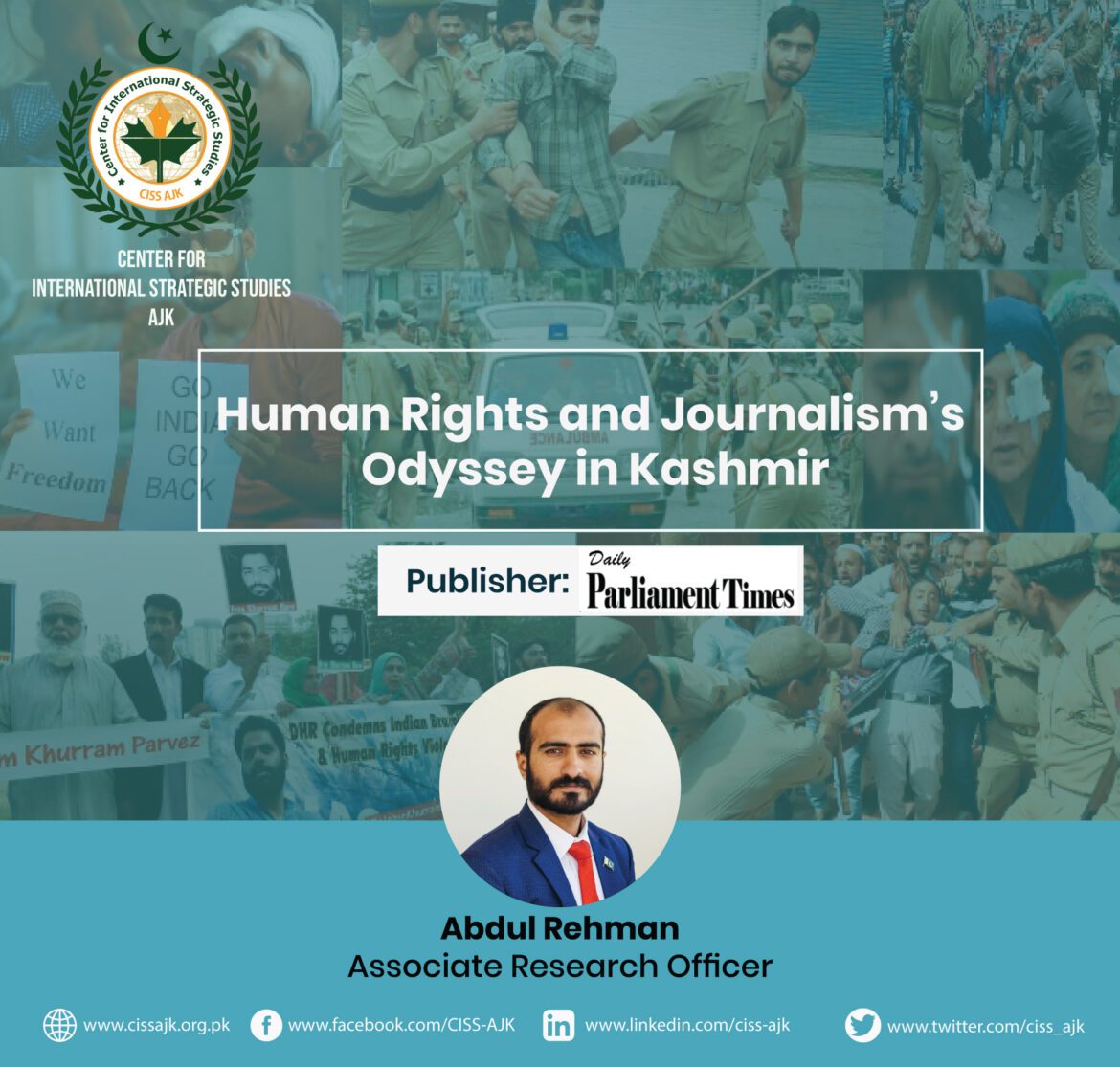687
In the dimly lit confines of a prison cell, Kashmiri journalist Fahad Shah faced more than just bars; he grappled with the slow erosion of his very identity. “Jail crushes you slowly from inside. You get affected mentally and physically. You reach a point where you are broken, and you make peace with this new personality you become in the prison,” he lamented. Accused of “glorifying terrorism” and spreading “anti-national content,” Shah, founding editor of The Kashmir Walla, an independent news outlet in Indian-administered Kashmir, was arrested under the country’s anti-terror and colonial-era sedition laws in February 2022. Shah, a key writer for “The Kashmir Walla” and an occasional voice in global publications like The Guardian, Time, and Foreign Policy, experienced the harsh toll of being locked away. His words tell not only his personal struggle but also reveal the bigger challenge faced by those ensnared in the clutches of state authority. In this crucible of adversity, Shah’s narrative unveils not only a personal struggle but a microcosm of the broader crisis corroding the foundations of human rights in Indian Illegally Occupied Jammu and Kashmir.
“The arrest of Fahad Shah shows Jammu and Kashmir authorities’ utter disregard for press freedom and the fundamental right of journalists to report freely and safely,” said Steven Butler, Committee to Protect Journalists’ Asia program, at the time. The echoes of his words resound as a testament to the perils faced by journalists and activists who dare to navigate the treacherous terrain of truth in a region where independent journalism contends with the relentless suppression of dissent.
In a recent ruling, the Jammu and Kashmir and Ladakh High Court, quashed the detention of journalist Sajad Ahmad Dar (Sajad Gul), a reporter with The Kashmir Walla. The court explicitly stated that “being a critic of the government” does not constitute justifiable grounds for detaining an individual and underscored the importance of specific and substantiated allegations against the accused. In scathing remarks, the court condemned such detentions as “an abuse of the preventive detention law,” shedding light on the misuse of state power.
Sajad Gul, held under the Jammu and Kashmir Public Safety Act since January 16, 2022, faced charges related to his social media activity and statements, accused of promoting enmity. The court’s assertion that detaining critics of government policies is an “abuse of preventive law” raises broader concerns about the escalating violation of human rights in the region. This case contributes to a disconcerting pattern where draconian laws are employed by state authorities to stifle independent journalism. This erosion of the pillars of free expression perpetuates an environment of intimidation and censorship, further undermining the principles of democracy.
As we mark World Human Rights Day, these narratives underscore the urgent global attention required to safeguard human rights in Indian Illegally Occupied Jammu and Kashmir. The international community must recognize the systematic abuse of preventive detention laws as an affront to democratic principles. The suppression of dissent, the curtailment of press freedom, and the misuse of legal frameworks are alarming trends that demand a unified and unequivocal response.
On this significant day, we are reminded that the principles of human rights are universal, transcending borders and political affiliations. It is incumbent upon the international community to stand in solidarity with those who endure the erosion of their rights. The stories of Fahad Shah and Sajad Ahmad Dar serve as poignant reminders that the pursuit of truth and the protection of human rights should be unwavering commitments for all nations. As we commemorate World Human Rights Day, let it serve as a clarion call for renewed vigilance, collective action, and a steadfast dedication to upholding the dignity and freedom of all individuals, regardless of their geographical location. The subsequent release of Fahad Shah and Sajad Ahmad Dar on court orders further illuminates the imperative of justice prevailing over arbitrary detentions and underscores the resilience of those who courageously advocate for truth and human rights.
The importance of journalists in conflict zones, particularly in regions like Kashmir, cannot be ignored. In conflict-ridden areas where media is often state-controlled and subjected to stringent regulations, journalists become invaluable conduits for disseminating accurate information and providing a voice to the voiceless. In the case of Kashmir, where the region experiences the highest frequency of internet blackout periods, journalists serve as vital witnesses and communicators amidst the prevailing darkness.
The Guardian’s revelation that India had the most internet shutdowns globally in 2022, with Jammu and Kashmir facing the brunt of these restrictions, underscores the challenging environment in which journalists operate. The deliberate disruption of internet services hampers the flow of information, making it a strategic tool employed by authorities to control narratives and suppress dissent. In this context, journalists not only become watchdogs of truth but also resilient defenders of the right to information, a cornerstone of democratic societies.



